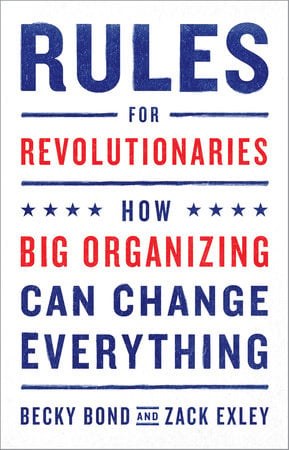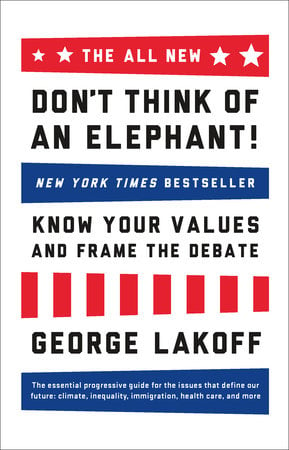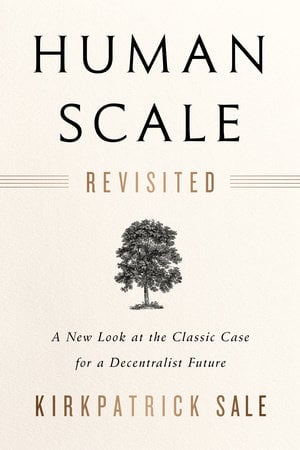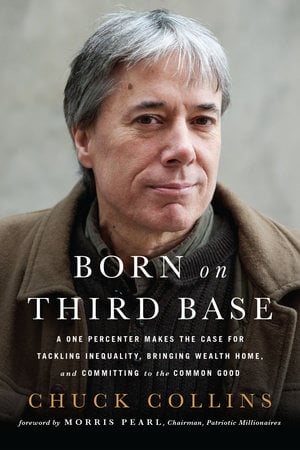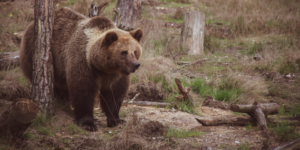Politics: There’s No Room for Politeness

The polite thing to do when asking for something is to say “please” and wait patiently. However, this doesn’t work in politics currently. Movements and change will only occur when the people demand action, when they have strong voices delivering their messages, and when they leave politeness on the table. Take Bernie Sanders for example.
The following excerpt is from Rules for Revolutionaries by Becky Bond & Zack Exley. It has been adapted for the web.
You Won’t Get a Revolution If You Don’t Ask for One
What set Bernie apart from the start of his campaign was his message and his authenticity as a messenger. Then he unleashed the makings of a real political revolution—he asked for one.
He outlined the radical solutions our moment calls for, not the tepid incrementalist compromises that most politicians think are all that is feasible.
Bernie didn’t talk about education tax credits or even debt-free college. He demanded free college tuition.
He didn’t advocate for complicated health insurance schemes, he said “health care is a human right.”
Bernie called for an end to mass incarceration, not incremental changes in sentencing laws.
He had no ten-point plan to regulate fracking to the point that it wouldn’t be feasible in most places in the United States. He simply said we should ban fracking.
When it came to the deportation of children, he couldn’t have been clearer. “I will not deport children from the United States of America,” he said.
Part of Bernie’s effectiveness came from his matter-of-fact way of speaking and his old-school Brooklyn accent. But what really allowed people to trust him is that “he has been saying the same thing for thirty years.” Bernie volunteers said that everywhere we went.
People ask us: What can we learn from the big organizing that powered the volunteer movement behind Bernie Sanders? Is it only possible in a presidential campaign?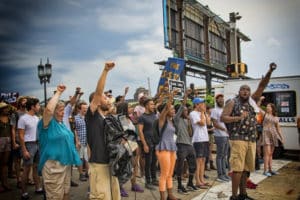
No. Think about the movement to defend black lives. Leaders like Alicia Garza and Erica Garner are powerful messengers with a powerful message. Who they are and what they are saying and where they are saying it represents a major change from how national civil rights advocacy has been voiced and led in the past few decades. Or think about climate activists fighting to keep fossil fuels in the ground. Native American leaders, ranchers, and students are leading these fights instead of the public interest lawyers whom the mainstream green movement has had leading the charge on environmental issues. These new leaders are showing the world that the fight to keep fossil fuels in the ground is not a pet issue; it is no less than a basic struggle for human rights.
In fact, people are willing to go big to win big change. When there is a credible plan to win something truly game-changing, more people commit to actions, big and small, to work together toward victory.
In 2011, CREDO was one of a handful of groups that joined 350.org in organizing mass arrests at the White House. Becky had already been deeply involved in the fight to stop the Keystone XL pipeline, but organizing civil disobedience was an escalation of tactics.
Elijah Zarlin, who had worked in the Chicago headquarters of President Obama’s 2008 campaign and at the time worked for CREDO, wrote an email to CREDO’s members. The email began, “This isn’t an everyday request. I’d like you to consider doing something really big.”
That big thing was to go to jail in peaceful civil disobedience to send a message to the president to reject a tar sands oil pipeline. Keystone XL wasn’t just any pipeline, it was the fuse on a veritable carbon bomb lying below the surface of western Canada—oil that we had to keep in the ground.
When Elijah was arrested in front of the White House with over a hundred other protesters (including Becky), he had to sit for hours in the hot August sun in a white dress shirt and the tie he had last worn on Election Day in 2008 celebrating his team’s historic win—a win that put the man he was now protesting into the White House. Sitting next to him was a middle-aged businessman sweating in a blazer too heavy for the heat. (Protesters had all been asked to dress in their Sunday school best so their image would be more “Middle America” than “hippie forest defender.”)
“How did you end up here?” Elijah asked.
The man replied that he had received an email inviting him. Without revealing his identity, Elijah pressed, “From what group?”
The man couldn’t remember. “I’m on a lot of lists,” he said. “But I do remember opening the email and reading the first line. It said, ‘I’m going to ask you to do something big.’ And I thought to myself, I’m ready to do something big to stop climate change.”
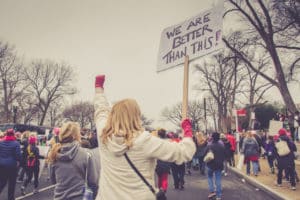 Hours after the arrests, after a sweaty police van ride to Anacostia, where the protestors were processed and later released, Elijah looked up his co-arrestee in the CREDO database. The man had never signed a petition. Never. But when he got an email asking him to do something big, he drove to DC, put on a blazer and tie and sat down in front of the White House and refused to move until the police arrested him and he was carted away.
Hours after the arrests, after a sweaty police van ride to Anacostia, where the protestors were processed and later released, Elijah looked up his co-arrestee in the CREDO database. The man had never signed a petition. Never. But when he got an email asking him to do something big, he drove to DC, put on a blazer and tie and sat down in front of the White House and refused to move until the police arrested him and he was carted away.
CREDO went on to organize the Pledge of Resistance in 2013 and nearly one hundred thousand people pledged to risk arrest in order to defend the climate and block the Keystone XL pipeline. With help from direct-action trainers, Rainforest Action Network, and other allies, they went around the country training teams of volunteers to plan actions in their communities—at TransCanada offices, at US State Department offices, and at local Democratic Party headquarters.
We’re not saying you can just ask people to do anything big and they’ll do it. That’s absolutely not it! Here are the rules behind the rule.
First, the goal you’re asking people to spend their precious time on needs to be worth their while. Remember, people are struggling every day at their jobs or their schools, in their neighborhoods, and sometimes in their families. Why should they join your fight? If you win, is it going to make a difference for them personally, or for their children or grandchildren, or for their community or country? Your big ask needs to be big in the real lives of the people you’re asking to join you. It’s not enough that you believe it’s big.
Second, you need to be able to tell people about a plan that gets from the world as it is to the world where you’ve won. And that plan needs to be credible. People are smart and, for good reason, are increasingly cynical when it comes to sussing out plans that will never work. They’ve seen countless political failures in their lives— personally, locally, and nationally. Your big ask needs to make sense to them.
Finally, you need to offer people a way to participate that will truly make a difference. And again, people are super smart about sensing when they’re being given busy work. Moreover, you need to give people small, medium, and really big ways to contribute—because some people will be able to put in a lot of time, and many more will only have one day per month or a couple of afternoons per week. If people see that you’re able to give everyone a way to participate, this makes your plan more credible (which helps win over more people) and allows you to take full advantage of all the people who are available to help—which is what’s going to propel you to win!
Any campaign, no matter the size, can ask people to do something big if it’s working toward something people believe is worth fighting for.
So the key to big organizing is that you don’t just ask people to pay staff at an organization to do something big (though supporting some staff with small dollar contributions is part of it). You ask people to be part of that something big. Because doing something big is only possible if everyone is doing it together. And that takes a lot of work. You need supporters to do big things (and a lot of small things that add up to big things) to help you execute a plan to win big change.
Almost anyone can make a big ask. You don’t have to be charismatic to make a big ask. You just have to have an ask that is worth working for, a plan to win, and meaningful roles for volunteers. The ask should never be for volunteers to add their names to a list so that organizers might call them back later; it needs to be immediate and crucial.
This is not something we’re discovering but rather something we’re lifting up. Every day movements are doing big organizing in the local context—and some movements in a lot of local contexts, and a few in a national context! They understand that people are less and less inclined to take small actions in isolation for small gains. Especially when our problems are so big, and it’s gotten so bad, and everybody knows it.
Recommended Reads
Recent Articles
Why is modern wheat making us sick? That’s the question posed by author Eli Rogosa in Restoring Heritage Grains. Wheat is the most widely grown crop on our planet, yet industrial breeders have transformed this ancient staff of life into a commodity of yield and profit—witness the increase in gluten intolerance and ‘wheat belly’. Modern…
Read MoreAddressing the pressing issues affecting everyday Americans is essential—and one of our nation’s most profound challenges is the devastating impact of mass layoffs. Layoffs upend people’s lives, cause enormous stress, and lead to debilitating personal debt. The societal harm caused by mass layoffs has been known for decades. Yet, we do little to stop them.…
Read MoreWhat does facing the beast mean? In this time of uncertainty, we must practice regular reflection to achieve optimal happiness and health. The metaphor below gives insight into confronting and facing it, regardless of what “the beast” is to you. The following is. an excerpt from Facing the Beast by Naomi Wolf. It has been adapted for the…
Read MoreWe’ve all heard of the phrases “time flies” and “time heals all wounds,” but what really is time, and how does it impact our lives? The concept of time may be even more powerful than we think, especially when it comes to the money we save and spend. The following is an excerpt from The…
Read More“Climate change asks us questions that climate science cannot answer,” — Dougald Hine When it comes to climate change, it seems as if there are always new questions arising: How did we get to this point? How can we stop it? What’s next? Unfortunately, there is no black-and-white, straightforward answer to any of them —…
Read More

